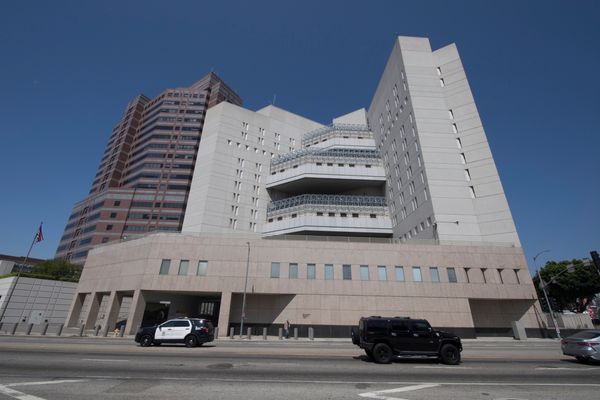
Washington (AFP) - US Supreme Court nominee Ketanji Brown Jackson defended her record of sentencing in child porn cases and advocacy for terror suspects as she was grilled Tuesday in her bid to be the first Black woman on the country's highest judicial bench.
The 51-year-old Harvard graduate faces more than 18 hours of questioning in the US Senate on her judicial philosophy and career after being named by President Joe Biden to succeed retiring fellow liberal Justice Stephen Breyer.
Fielding a wide array of questions from Democrats and Republicans on the second day of hearings, Jackson confirmed her support for diversity, telling senators her parents went to segregated schools.
She stressed her backing for free speech protections for all Americans, and said the ability to bear arms is a "fundamental right" guaranteed by the Constitution.
The Miami native is already expected to have enough votes in the 50-50 Senate to succeed retiring fellow liberal Justice Stephen Breyer without much of a fight -- but her elevation would still be seen as historic.
Of the 115 justices seated during the Supreme Court's 233-year history, 108 have been white men and none have been Black women.
Jackson's advocates on the Democratic benches were keen to allow her the opportunity to offer "pre-buttals" on the issues where they expect her to be most vulnerable to Republican attacks.
Right-wing Senator Josh Hawley listed several cases Monday that he said were examples of Jackson letting child porn offenders off the hook by deviating from federal sentencing guidelines in their favor.
"As a mother and a judge who has had to deal with these cases I was thinking that nothing could be further from the truth," Jackson said Tuesday of Hawley's claims.
Independent fact checkers, debunking Hawley, have said he neglected to point out that federal judges nationwide sentence below guidelines in roughly two-thirds of child porn cases.
Hawley also ignored the fact that prosecutors in most of the cases he cited had requested the lighter terms.
The bipartisan congressional body responsible for setting sentencing rules has acknowledged that the guidelines sometimes fail to appreciate the difference between viewing, possessing, transporting or distributing child porn and the more serious offense of making it.
Jackson also defended her role representing Guantanamo Bay detainees as a federal public defender, a part of her career that has raised Republican eyebrows.
'North star'
After the September 11, 2001 attacks on the United States by Al-Qaeda, Jackson represented Afghan Khi Ali Gul, who spent more than a decade at Guantanamo Bay before being sent home without charge.
"That's what you do as a federal public defender -- you are standing up for the constitutional value of representation," she said Tuesday.
Democratic committee chairman Dick Durbin asked Jackson about the contentious issue of increasing the current size of the nine-justice court, but she declined to weigh in with a personal view on so-called "court packing."
"My north star is the consideration of the proper role of a judge in our constitutional scheme," Jackson said.
"And in my view judges should not be speaking to political issues, and certainly not a nominee for a position on the Supreme Court."
Keen to keep the focus on kitchen table issues like inflation that will resonate in November's midterm elections, conservatives have so far trodden lightly with Jackson in a bid to avoid a headline-grabbing political bun fight.
But she is nevertheless likely to face several hours being interrogated on her judicial philosophy, and whether she will seek to interpret the law or to remake it according to her political views.
"I am acutely aware that as a judge in our system I have limited power and I am trying in every case to stay in my lane," said the judge, whose husband Patrick Jackson was seated behind her.
The hearings are expected to conclude on Thursday and Democrats hope for a Senate vote before the Easter recess in mid-April.







